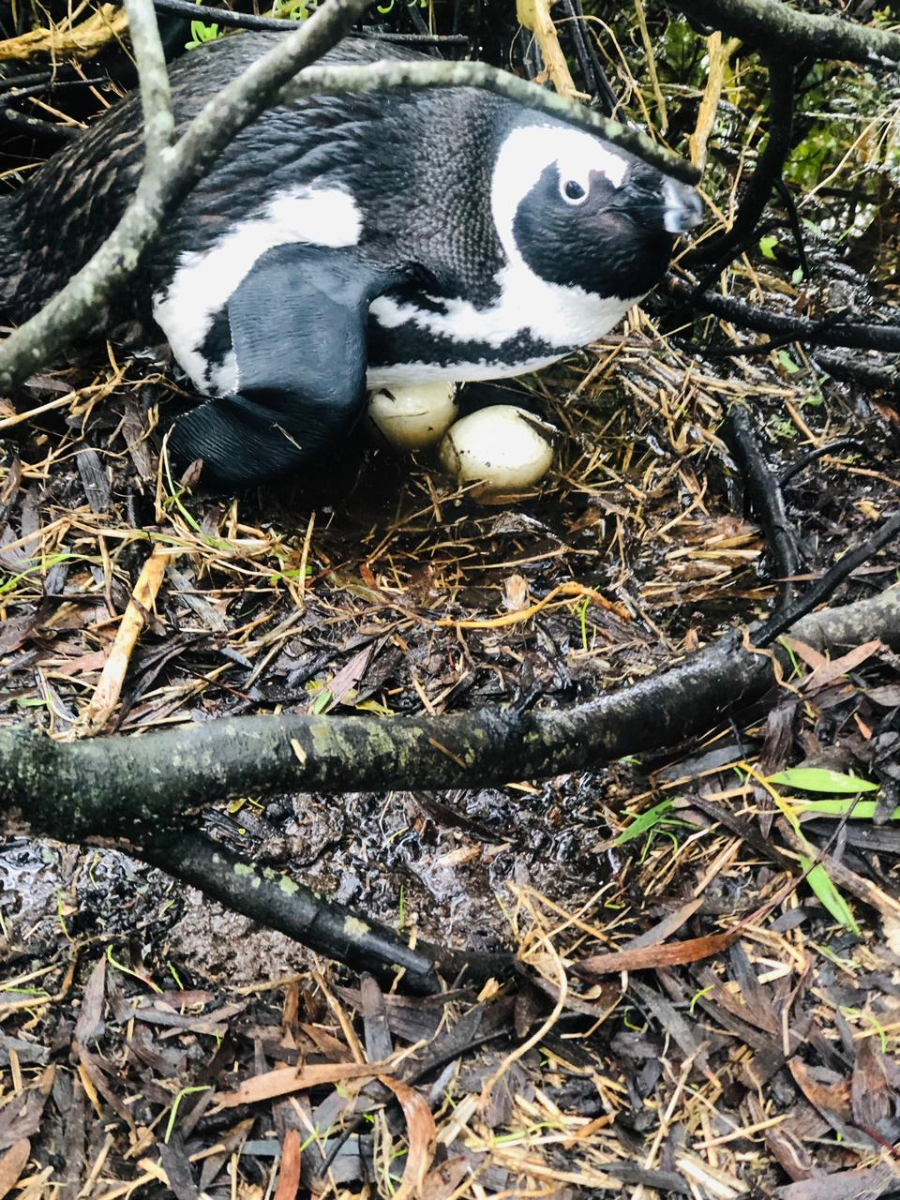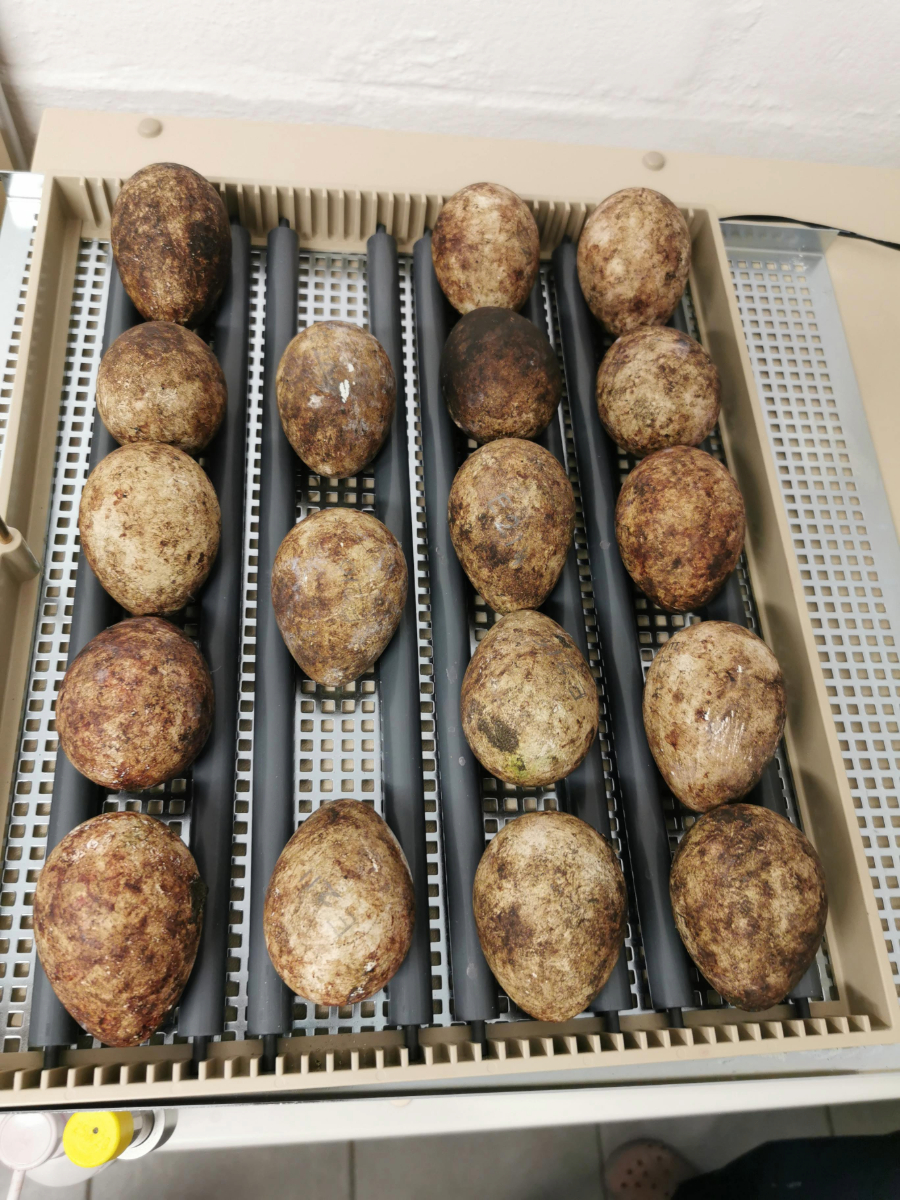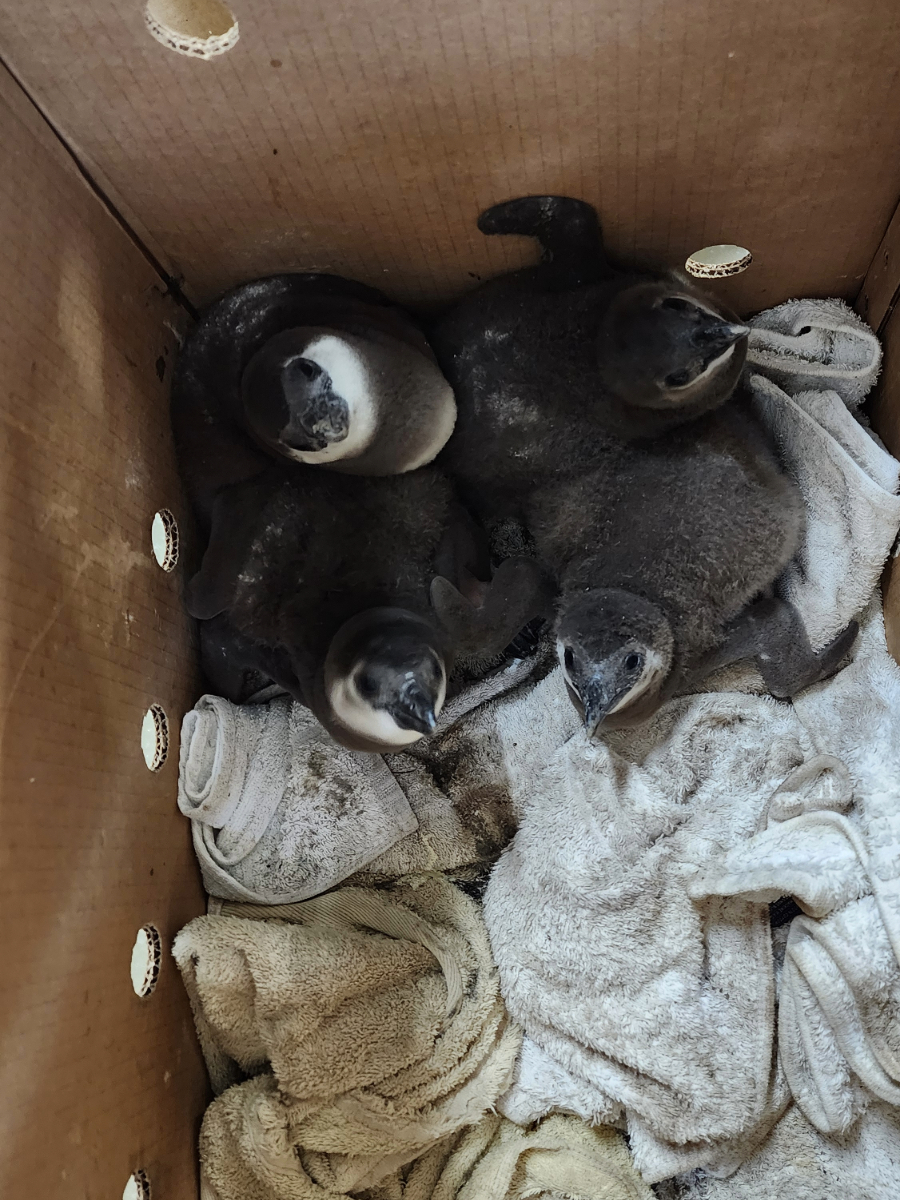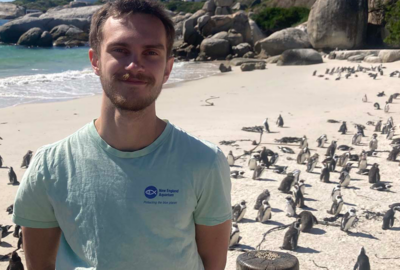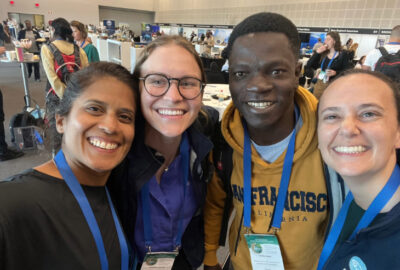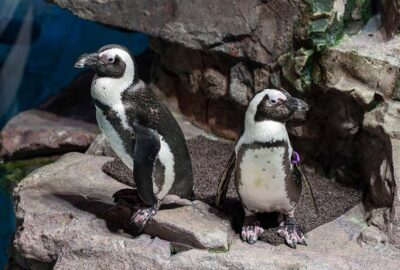Saving the African Penguin: A Critical Mission to Combat Storm Damage and Ensure Survival
Learn how a local organization is working to rescue and protect African penguins in their native South Africa, with support from the Aquarium’s Marine Conservation Action Fund.

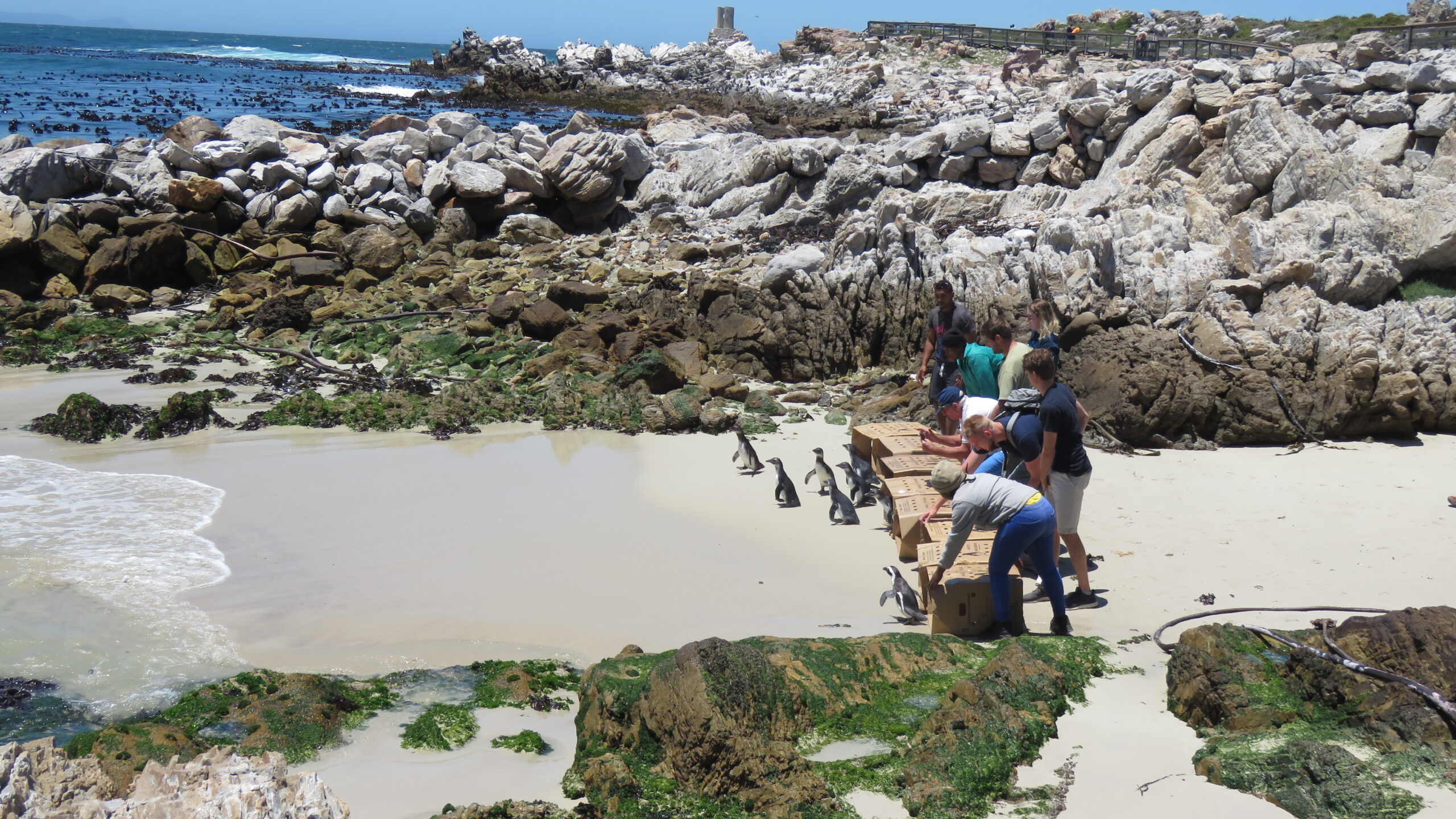
By Melissa Knott, head of operations, SANCCOB
This post is one of a series on projects supported by the New England Aquarium’s Marine Conservation Action Fund (MCAF). Through MCAF, the Aquarium offers multi-faceted support to leaders from low- and middle-income countries who are spearheading community-based ocean conservation initiatives.
In 2024, MCAF helped support the Southern African Foundation for the Conservation of Coastal Birds (SANCCOB) as they rescued and hand-reared African penguin eggs and chicks that were abandoned during severe storms along the southwestern coast of South Africa, released the birds back into the wild to contribute to the wild population of these critically endangered animals. The rehabilitation efforts were coordinated by SANCCOB Conservation Impact Manager and MCAF project leader Romy Klusener at the SANCCOB center in Cape Town.
The Western Cape coastline of South Africa is no stranger to fierce winter storms. Between June and August, these storms, accompanied by heavy rainfall, have become a growing threat to wildlife, particularly the African penguin. These storms can flood penguin nests, leaving eggs and chicks vulnerable to drowning or abandonment by their parents. With African penguin populations steadily declining and the species being upgraded to Critically Endangered in October 2024, the need for swift, efficient intervention has never been more urgent.
At the heart of this mission is SANCCOB, a vital organization dedicated to rescuing, rehabilitating, and releasing abandoned or injured seabirds—most notably, the African penguin. Their role is not just about saving penguins; it’s about ensuring the survival of a species facing mounting challenges.
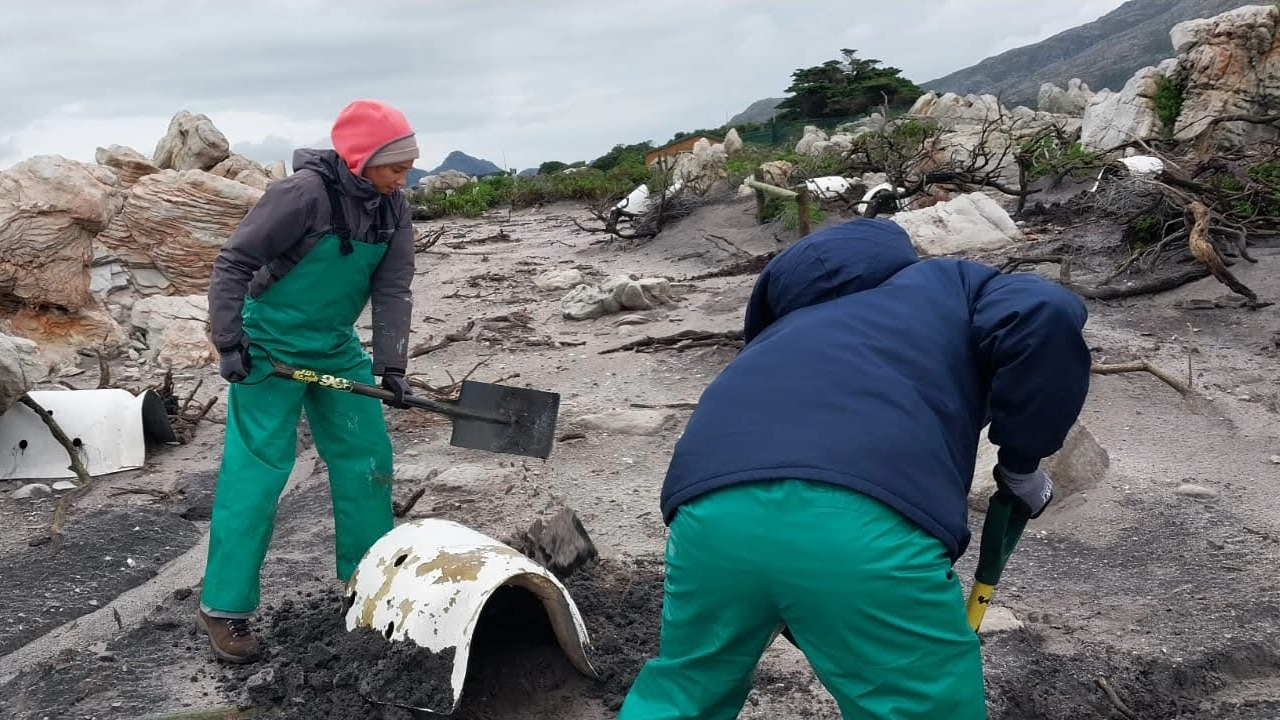
Rising storms, rising challenges
In recent years, the impact of climate change has made the storms on the Western Cape coast more severe, contributing to an increase in abandoned penguin eggs and chicks. This uptick in flooding has forced SANCCOB to ramp up its efforts to rescue and hand-rear these young penguins, a vital step to prevent their death and secure the future of the species.
In 2024, the organization, alongside conservation authorities and the SANCCOB Seabird Rangers, implemented proactive measures to safeguard penguin colonies. These measures included habitat restoration, erosion control, brush packing, and trench digging to direct water flow away from penguin nests. The goal was simple yet vital: prevent as many nests as possible from being flooded, reducing the number of penguin chicks and eggs that would require rescue and rehabilitation.
A successful year for African penguin conservation
In 2024, these combined efforts proved effective. 63 African penguin eggs and 51 chicks were rescued from colonies like Stony Point and Simon’s Town, where nests had been flooded. Of these, 46 eggs hatched, and a total of 97 chicks were hand-reared at the SANCCOB Table View Centre. After months of dedicated care, 87 fledglings were successfully released back into the wild, marking an incredible 90% release rate.
The positive impact of this habitat restoration and storm preparation cannot be overstated. The reduced number of rescued eggs and chicks reflects the success of the preventative measures in place, and the high release rate demonstrates the quality of SANCCOB’s hand-rearing program. Research has shown that hand-reared penguins fare just as well in the wild as their wild-born counterparts, contributing to the long-term growth of the African penguin population.
/
Training the next generation of conservationists
In addition to rescuing penguins, SANCCOB’s commitment to education and capacity-building in the conservation sector is essential. From July to December 2024, eight interns were trained in chick-rearing techniques, including caring for both small chicks in the Chick Rearing Unit and larger chicks in the Nursery. These interns are not only contributing to current conservation efforts but are being equipped with invaluable skills that will shape the future of the conservation field.
Overcoming challenges and maintaining progress
Despite the successes, there remain challenges that need to be addressed. Communication with conservation authorities, maintaining strong relationships with colony managers, and ensuring timely rescues remain key to the success of the project. SANCCOB’s newly appointed Conservation Impact Manager and MCAF project leader, Romy Klusener, is dedicated to strengthening these relationships, ensuring seamless coordination, and overseeing the training of colony staff to prioritize the care of penguins in need.
A significant challenge is the increasing demand for space at the SANCCOB Table View facility, which is essential for providing optimal conditions for incubating and hand-rearing the growing number of rescued eggs and chicks. In response, SANCCOB is expanding its Chick Rearing Unit to accommodate the rising numbers and provide the highest standards of care.
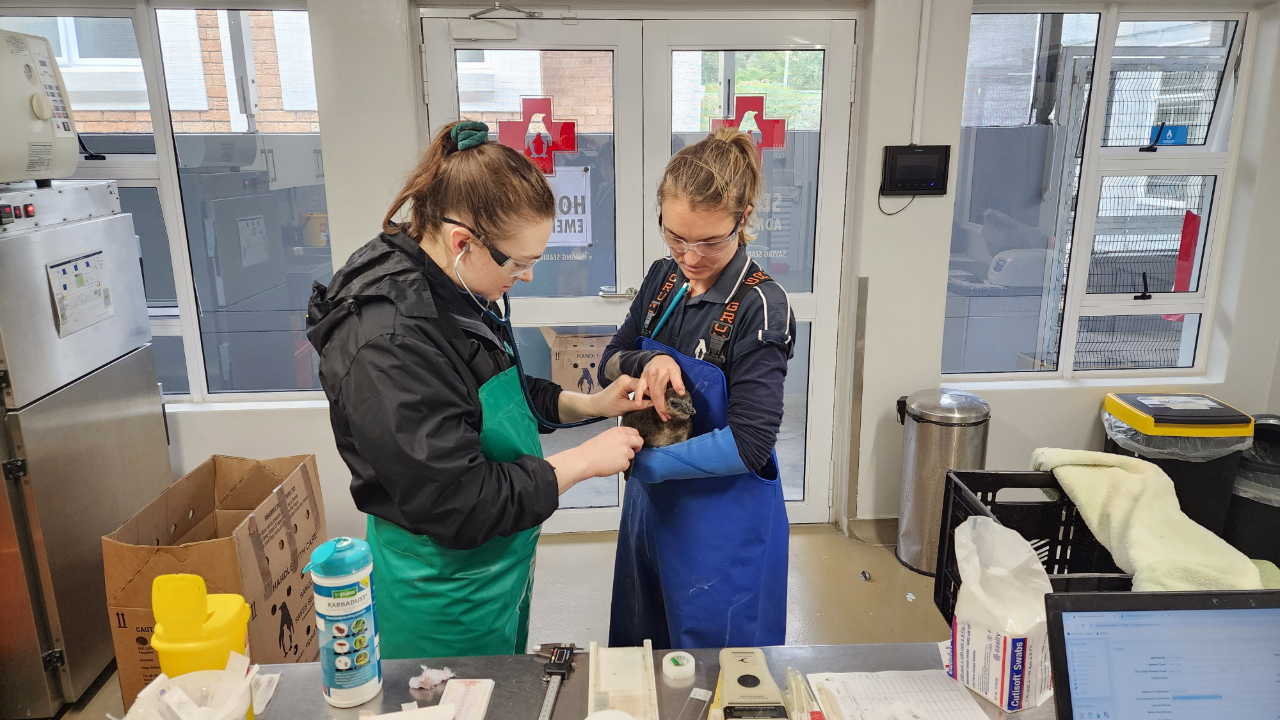
The importance of hand-rearing and transponder monitoring
Together, we can help protect one of South Africa’s most beloved seabirds and ensure their future in the wild.
A critical aspect of SANCCOB’s work is the African penguin Transponder Monitoring Programme, which tracks hand-reared chicks after their release. With each fledgling fitted with a transponder, researchers can track their movements and monitor their survival rates, providing invaluable data on the success of rehabilitation efforts. Current studies have shown that hand-reared penguins contribute significantly to strengthening colonies that are essential for the survival of the species.
A future at risk: funding needs
While SANCCOB’s work continues to make a tangible impact, there are still challenges ahead. The need for ongoing funding remains critical, particularly for operational costs such as
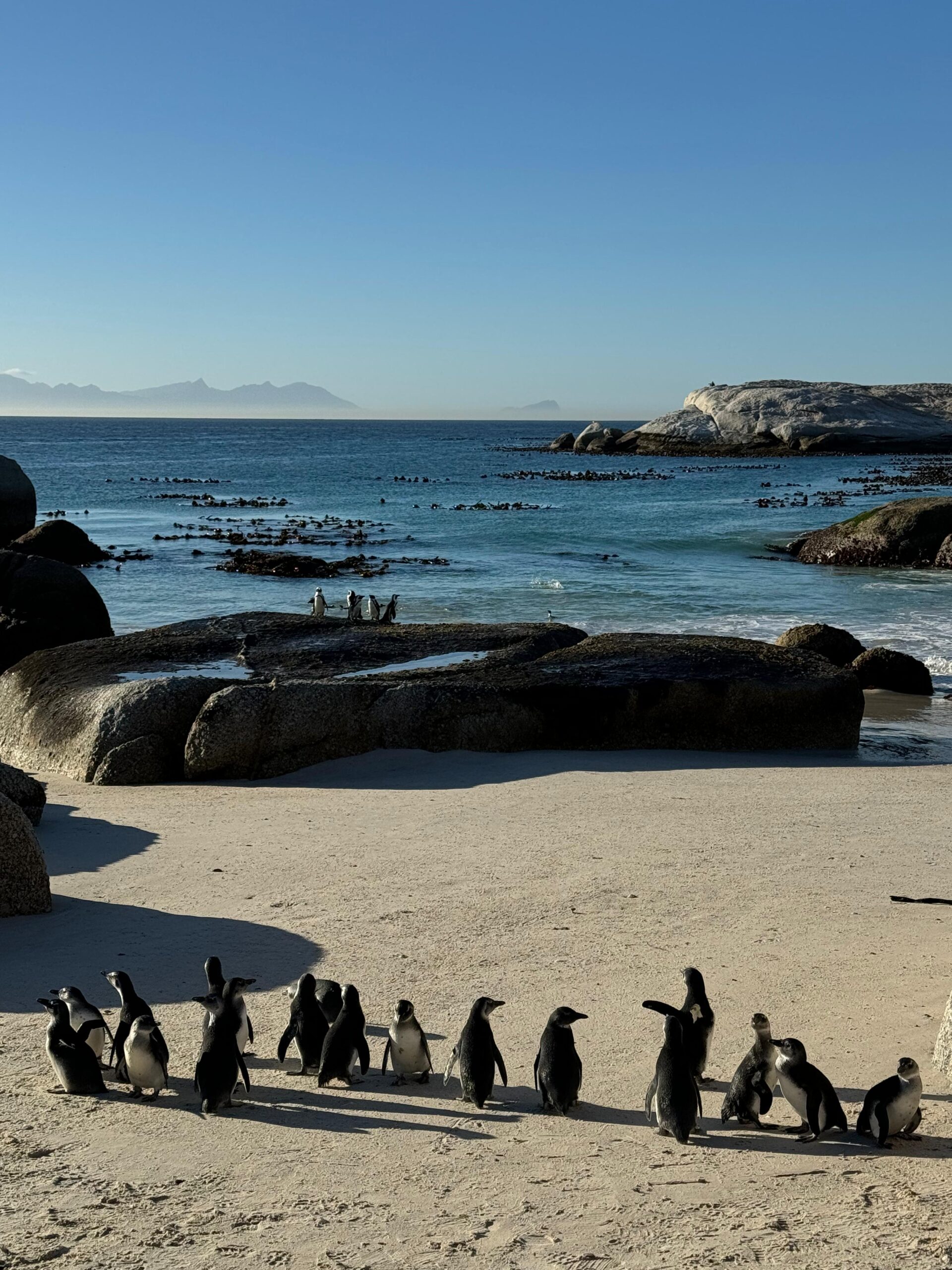
hospital expenses, staff salaries, and rehabilitation resources. In 2024, SANCCOB received a US$12,000 grant from MCAF to cover the costs of rescuing, rehabilitating, and releasing at least 65 African penguin chicks. This funding helped cover transportation costs, rehabilitation materials (such as fish, supplements, and cleaning supplies), protective gear for staff, and wages for key personnel.
Thanks to generous donors like MCAF, SANCCOB has been able to continue its vital work. Their support makes a real difference in the fight to save the African penguin from the brink of extinction.
Looking forward
The work to protect the African penguin is far from over, but the success of 2024 shows that proactive conservation, habitat restoration, and effective hand-rearing programs are making a difference. Every rescued egg and chick represent hope for the future of this iconic species, and with continued support, SANCCOB is poised to continue its critical work.
By investing in these conservation efforts, we’re not only saving penguins but ensuring that future generations will be able to experience the joy of seeing these remarkable creatures in the wild. If you’d like to be part of the solution, consider supporting SANCCOB’s mission or learn more about how you can contribute to the survival of the African penguin.

